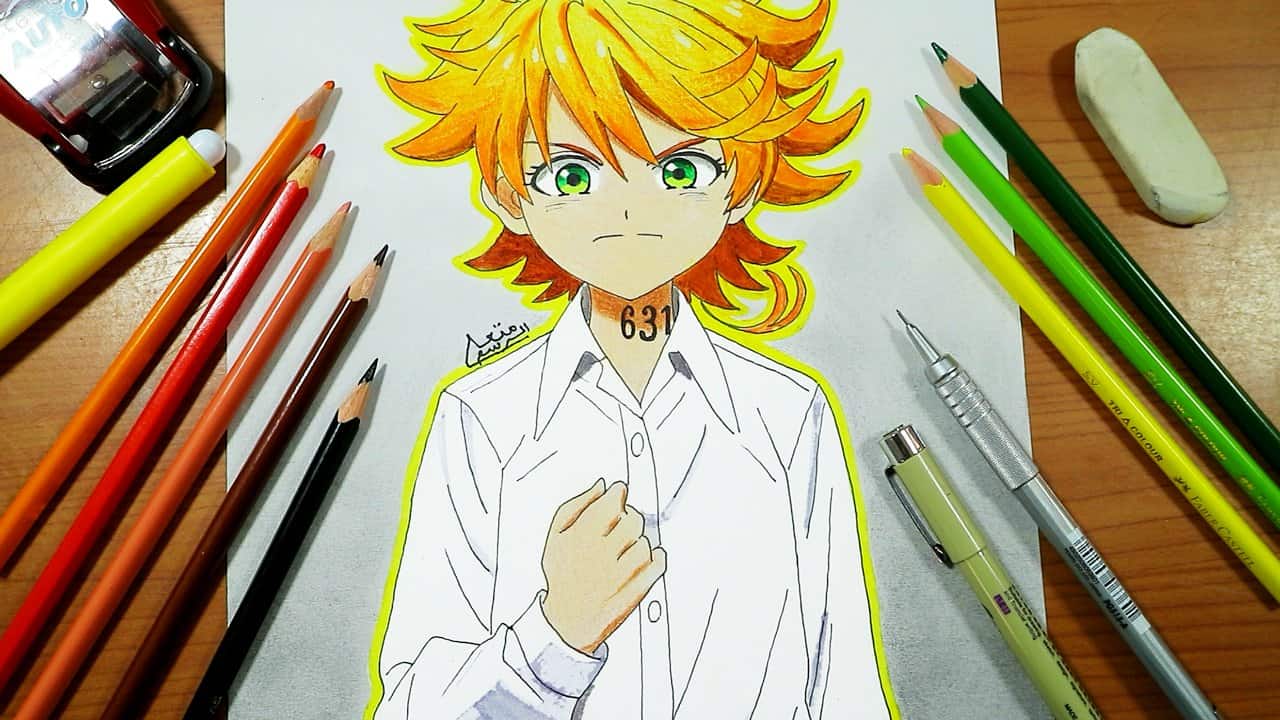Warning: Spoilers to follow for “The Promised Neverland”
Sometimes the world doesn’t operate how we might think. In the first season of The Promised Neverland, Emma, Norman, and Ray discovered that the orphanage where they lived was not as warm and loving as it first appeared. Their caretaker, known as “Mama,” has kept the thirty-some children on the orphanage grounds, unable to see or hear from anybody on the outside before they are all “adopted” by their twelfth birthdays and are never heard from again.
When Emma and Norman discover the cruel reality that the “adopted” children are sold off to monsters who desire the delicacy of human brains, Emma decides that they need to find a way to save all the children, not just themselves. Emma’s selflessness shocks her companions because her plan is unnecessarily risky. It would be difficult enough to escape with just the three of them. Trying to involve all thirty children would make any plan more complicated. What if one of them reports them to Mama? What do they do with the smaller children who are uncoordinated and cannot keep a secret?
But Emma persists. They can save others if they work together in subtle ways. Only a few other children need to know the reasons behind their planned escape. The dark secret of the orphanage could paralyze the others with fear. Once everybody is safe, then they can tell them the whole truth about why they had to leave.
Emma’s noble desires seem to be met with roadblock after roadblock. Mama recruits another adult to come and help keep watch over the children. There is a spy among their ranks. And, after a failed escape attempt, Mama breaks Emma’s leg. When Norman is “adopted” earlier than expected, all hope seems lost, and Emma is forlorn.
As her leg heals, Emma continues to direct the other children in preparation for their escape. The first season ends with Emma leading all the children age five and older away from the orphanage. Emma promises to come back within two years to save the youngest children so that they all can have full and happy lives.
The second season will begin with the children exploring their new and unknown world, facing whatever dangers confront them. The compassion and selflessness that Emma brought to the rescue attempt rubbed off on her companions, making them more altruistic . In their actions, the children discover that seeking after their own good is not enough. They couldn’t rest easy if they got away at the cost of the suffering of others.
At one point, Norman is given the chance to escape just before he is “adopted.” Ray and Emma set up a distraction to keep Mama occupied, and Norman scales the wall in the forest at the edge of the property. However, he returns to the orphanage, choosing to accept his fate and offer the others valuable information for their escape. He recognized that if he escaped, then his friends would not be able to escape themselves.
That lesson of striving towards the common good is a lesson that can easily be applied to our own lives. It can seem easier and perhaps even safer to act in ways that only serve our own good, not thinking about or sometimes willfully ignoring the negative impact our actions can have on others. And we need the example of good people (whether people we know or among the saints) to remind us of how working for the good of others over ourselves is what our faith asks of us.
But this goal can never be accomplished by ourselves. We simply cannot do everything by ourselves. Each of us has different skill sets, and we must work with others to better work towards the common good. Some of us are good organizers while others have good people skills. As my dad would put it, we each have different tools in our toolboxes, and we have to see the complementarity of those skills. A screwdriver and a hammer have different functions and neither is better than the other.
But that doesn’t mean that the lesson is easy to put into practice. We all learn and relearn teamwork when we reach our limits in a difficult course and try our hand at a new game or instrument. Perhaps it’s more important to think about how we can work with others to help others improve when we have the choice to be selfish. I’ve picked this up myself as an assistant cross-country coach. For me, it could be a temptation to look at practices as my own workouts after a long day, but I learned that by working with the other coaches, we became better able to notice injuries early or make certain kinds of workouts feasible. And as a result, our team improved, and, as it should be, the runners received the accolades.
Emma chose the difficult path of trying to save everyone because she had relationships with the other children at the orphanage. Her care for them made her want to strive and push herself harder for their sake. But, if she didn’t have the tempering influences of Norman and Ray who forced her to think critically through the escape plan, she would not have been able to succeed. She needed them and they needed her to grow as people and to make their dangerous mission plausible.
Here we stand at the start of 2021, in a world that is broken and divided and in need of our goodness. How will we choose to make decisions that move us in the direction of the common good and of good relationships?
———
Photo from Flickr


